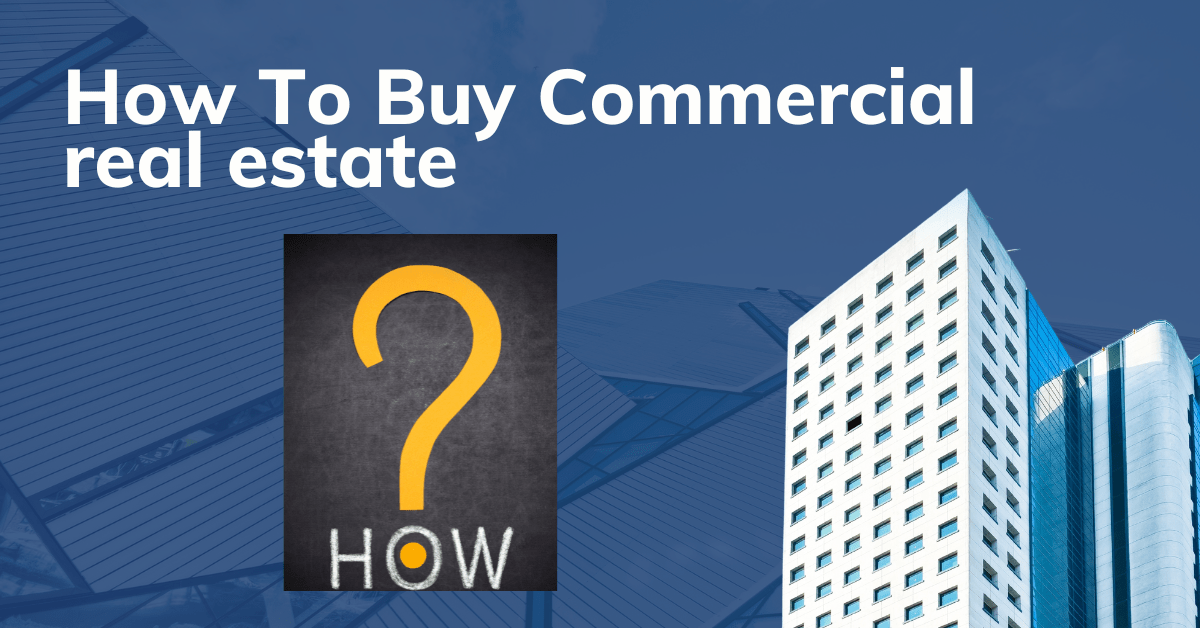Unlock the secrets steps to buying commercial real estate. Get expert tips on market analysis, financing options, and the first steps to successful investments.
Buying commercial property with right approach is not difficult. But some important knowledge for buying a commercial property is very important.Here is the steps for buying a commercial property are:
- Build a proper and experienced team
- Define Your Investment Goals
- Assess Your Financial Readiness
- Secure Financing Options
- Choose the Right Type of Commercial Property
- Findingthe best location
- Work with a Commercial Real Estate Broker
- Perform Due Diligence on the Property
- Negotiate the Deal
- Close the Deal
Table of Contents
ToggleBuild experienced team
In the world of commercial real estate, a competent team is everything. This team of professionals will likely be comprised of a commercial real estate broker, an attorney (more on that below), financial advisor and property manager. These professionals come with the depth of experience in sourcing deals, dealing with legal concerns, financing expertise and having a grip on property operations on an everyday basis. An expert and diversified team enable you to invest smartly, reduce potential risks, and increase investment returns.
Define Your Investment Goals
Determine your Investment Goals before you get started with Commercial Real Estate Do you want steady rental income or is this the property where your business will be housed in for 10 years and appreciate over time? Select a Commercial Property Type that Fits with Your Goals (i.e., office buildings, retail space, industrial warehouses or multifamily units.
Assess Your Financial Readiness
Compared to residential properties, the commercial real estate usually requires a large financial commitment. It requires a higher down payment (usually 15%-35%) and has stricter loan terms. Evaluate your finances, before considering the purchase to confirm that you have enough capital for:
- DP(down payment),
- Closing Costs & Reserves.
Secure Financing Options
This is the more challenging to secure the finance option. Some options are given;
- Commercial Real Estate Loans:Traditional bank loans, commercial mortgages are the best choice
- Private Financing:for a large deal you need to find a private investor
- Crowdfunding:pool money with other investors to purchase commercial properties collectively.
Choose the Right Type of Commercial Property
There are many type of commercial real estate. each type has its own benefit and risk some types of commercial real estate are give below;
- Office Buildings
- Retail Spaces
- Industrial Properties
- Multifamily Units
Finding the best location
This is why the location of commercial real estate sites are significant. Select locations with high economic growth, a lot of foot traffic and near transportation & amenities.
It should also be a location possible to match with the type of property, retail, office or industrial. Check out zoning regulations and unfilled regions nearness to get an arrangement that will keep its value well into the future. The right location can add multiples to the value of your property and attractiveness for a tenant.
Work with a Commercial Real Estate Broker
When purchasing or selling commercial properties, employing the services of a CCIM accredited industrial real estate broker is invaluable. A professional broker has unique local market trading knowledge and secret listings that may not be marketed to the general public.
They can help you get a better deal, understand the intricacies of all that paperwork and make sure everything is up to code. Your time is saved — the common pitfalls are also avoided as they have been there, done that. It is better to partner with an established broker who can facilitate and help in ensuring that the real estate process happens as intended.
Perform Due Diligence on the Property
Real estate due diligence is going to be very different when you are buying a commercial property. This includes a thorough examination of the state of the property, inspection and review all financial records as well as investigation into any legal or environmental issues.
You also need to check the buildings structure, electrical and plumbing work as you don’t want surprises with costly repairs. It is equally as important to check tenant leases, zoning laws and property taxes. Thorough due diligence allows you to be certain that the property meets your investment standards and helps prevent post-acquisition surprises.
Negotiate the Deal
One of the most important steps in buying commercial real estate is negotiating a deal. Craft an offer in collaboration with your broker that reflects both the value of the property and market conditions, as well as how it fits into what you hope to achieve on a financial level.
In negotiations, work to secure good conditions like the price, closing costs and contingencies for inspections/financing. Expect a Home Inspection: Be Ready to Wheel and Deal You might receive counteroffers, or even requests to make some repairs of improvements.
A good negotiation could mean more attractive pricing as well reductions of risks and a change in contract terms. Cherry-Picky Investments: Knowing your return goals and maintaining some flexibility will help you to pursue a deal or deals that are consistent with how you wish to deploy capital
Close the Deal
The last step to close the deal after checking the everything is After finalizing the negotiations and securing financing, you’ll move forward to closing the deal. This step involves signing the necessary legal documents, transferring funds, and paying any remaining closing costs. At closing, you’ll receive the property’s deed and officially become the owner.




